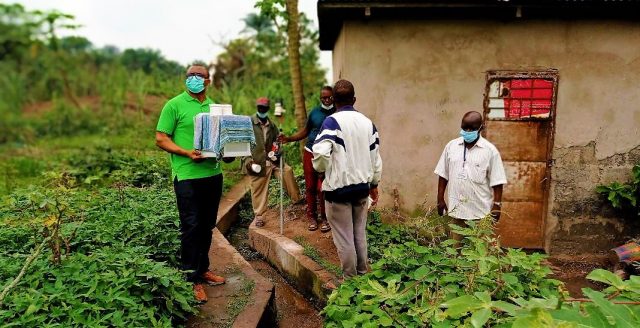Supervised by Prof. Charles Wondji with the assistance of Dr. Daniel Nguiffo-Nguete, a team from CRID went to the Democratic Republic of Congo (DRC) for a 13-days Anopheles mosquito collection mission.

Prof. Charles Wondji supervising field activities
For African researchers, it has become imperative to have a joint information system from all African countries with the highest burden of malaria. It is based on this reality that a team from the Centre for Research in Infectious Diseases (CRID), led by Prof. Charles Wondji and assisted by Dr Daniel Nguiffo-Nguete travelled to the Democratic Republic of Congo (DRC). The aim of this visit, was to collect Anopheles mosquitoes to conduct an assessment of their insecticide resistance profile. The team of Prof. Charles Wondji was assisted in the field by researchers from the National Institute for Biomedical Research (INRB) and Community Health Workers (CHWs). It should be noted that the DRC is one of the African countries where vector control efforts are based on the use of Long-Lasting Insecticidal Nets (LLINs).
However, the development of resistance to insecticides by mosquitoes deters the effectiveness of this control tool, thus highlighting the need to review control strategies in a context where resistance is proven. This situation is taking place in a context of emergence of resistance from vectors in general and those of malaria in particular. It should be evoked that, according to data from the World Health Organization (WHO), in 2020, the DRC was ranked as the second African country with the highest number of malaria cases. This Central African country has 11% of malaria cases in Africa. According to the same source, the first place of the ranking is occupied by Nigeria with 23% of malaria cases in the African continent. During this 13-days mission, CRID researchers alongside their INRB collaborators, explored the neighbourhoods of the Ndjili Municipality in the district of Tshangu, east of the city of Kinshasa, near River Ndjili. Overall, the collection was successful despite the reluctance of some residents to give access to the research team to collect mosquitoes in their homes.






